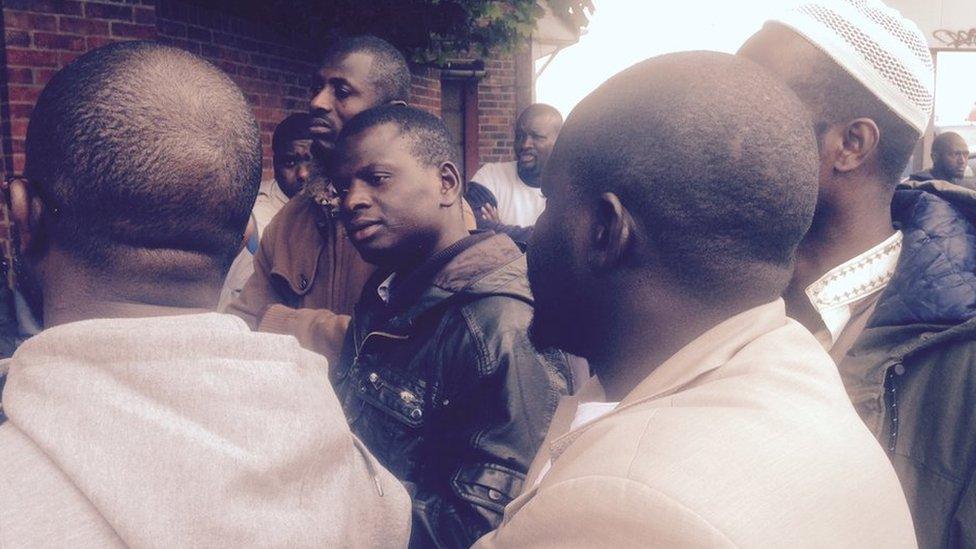Birmingham wall collapse deaths: Protest marks anniversary
- Published
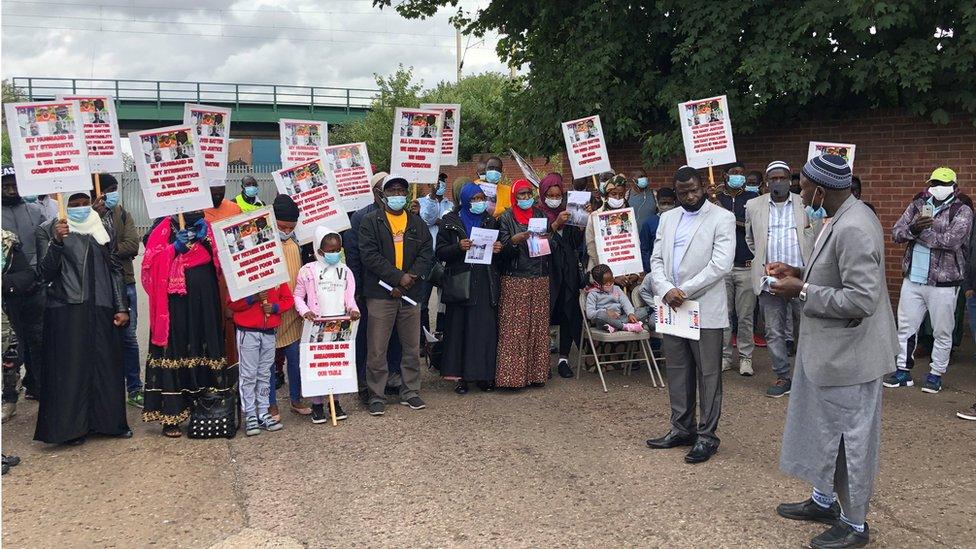
Relatives of the men were joined by friends at the protest outside Shredmet in Nechells
More than 50 people gathered outside a scrapyard on the fourth anniversary of five workers' deaths to protest over investigation delays.
Almamo Jammeh, Ousmane Diaby, Bangally Dukureh, Saibo Sillah and Mahamadou Jagana died at Shredmet's recycling plant in Birmingham on 7 July 2016.
Their wives and children were joined at the site earlier by dozens of friends.
The Health and Safety Executive (HSE) said its inquiry had taken "longer than we had hoped".
The five men, from Gambia and Senegal, were killed when a 3.6m (11ft 10in) concrete wall collapsed on them at the plant in Nechells.
At the inquest into their deaths in November 2018, the risk of the wall falling was described by the HSE as "foreseeable".
A jury returned an accidental death verdict. There has been no criminal hearing.
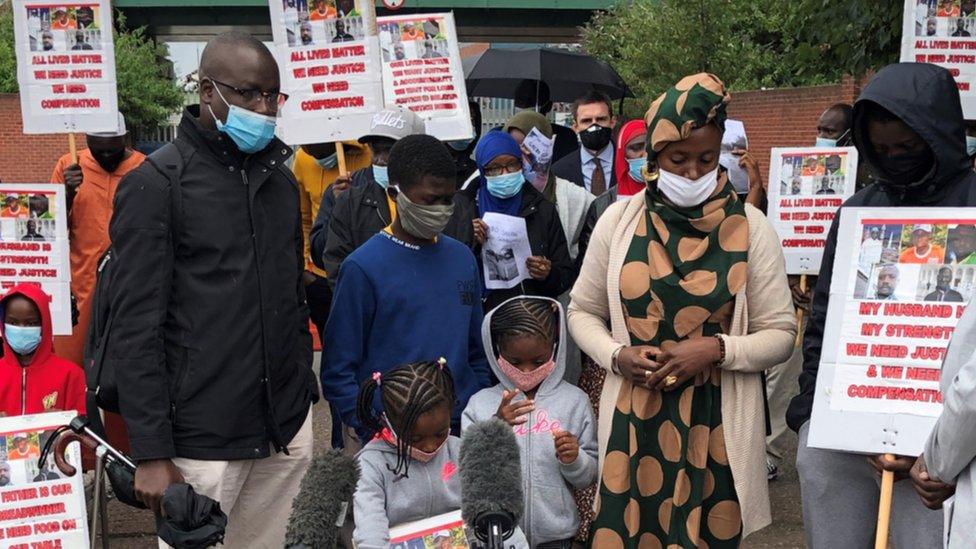
Aminata Diaby said the families wanted the justice they deserved
A minute's silence was observed for the men before four of the five widows gave emotional speeches through a translator while holding placards calling for justice.
Shredmet gates were closed throughout the protest.
Awa Dibba, widow of Almamo Jammeh, said it was a very "sad moment" to stand outside the place where her husband died.
"From that day to today, I am struggling," she said.
"The pain will never go away.
"There is no support in four years. We want the government and the company to do something about it now."
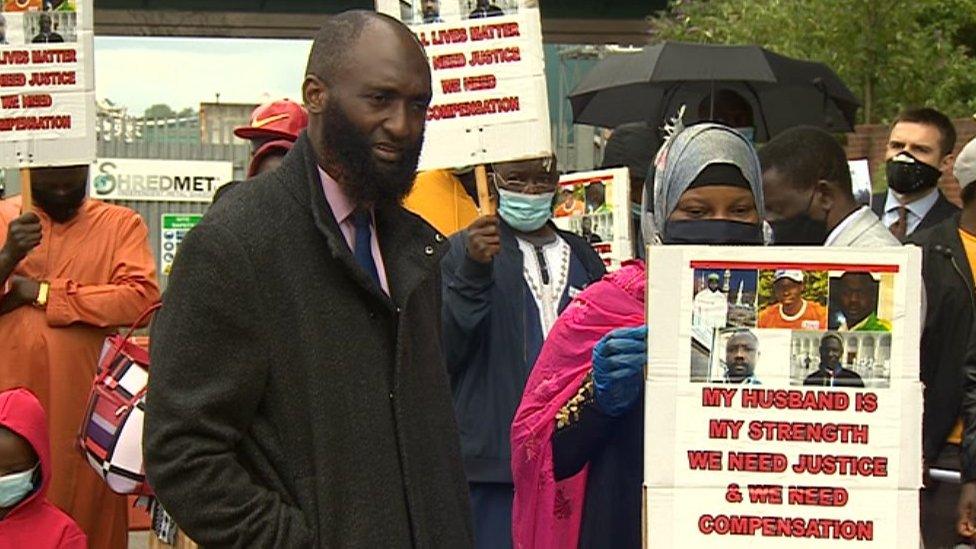
Hawa Kaba spoke about how much she missed her husband Bangally Dukureh
Aminata, widow of Ousmane Diaby, who flew from Spain with her children to join the protest, said it was a "day of reflection".
She said: "We are appealing to the authorities to look at us and see our problems... we need justice."
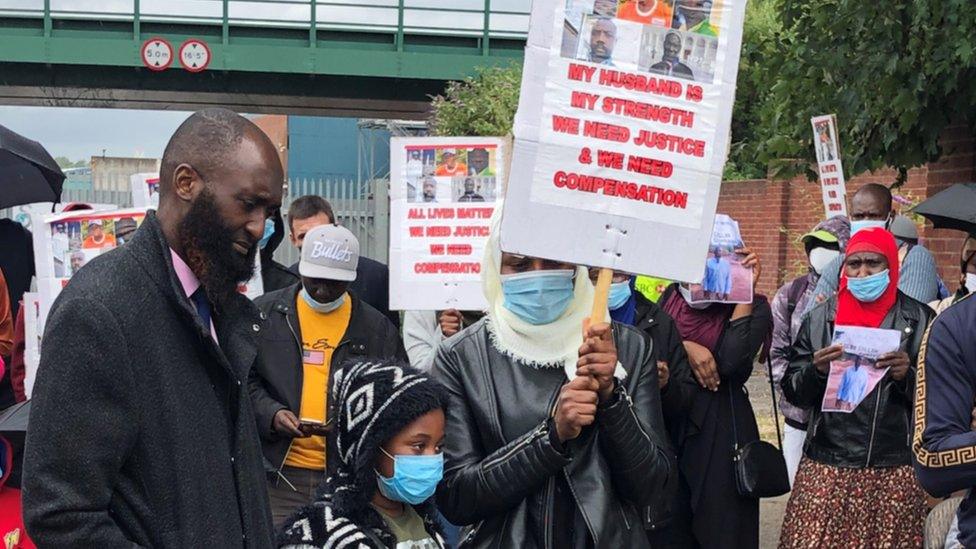
Hatomata, wife of Mahamadou Jagana, said Shredmet had left the families behind
Manka Sawo, who helped organise the protest, said the families demanded action by the authorities.
"We feel they are being discriminated against because of their heritage," he said. "Never did we think we'd be here four years later as this is the UK."
A spokesman for the HSE said it had been carrying out a thorough criminal investigation since the deaths and following up new lines of inquiry after the inquest, which meant the investigation had taken longer than hoped.
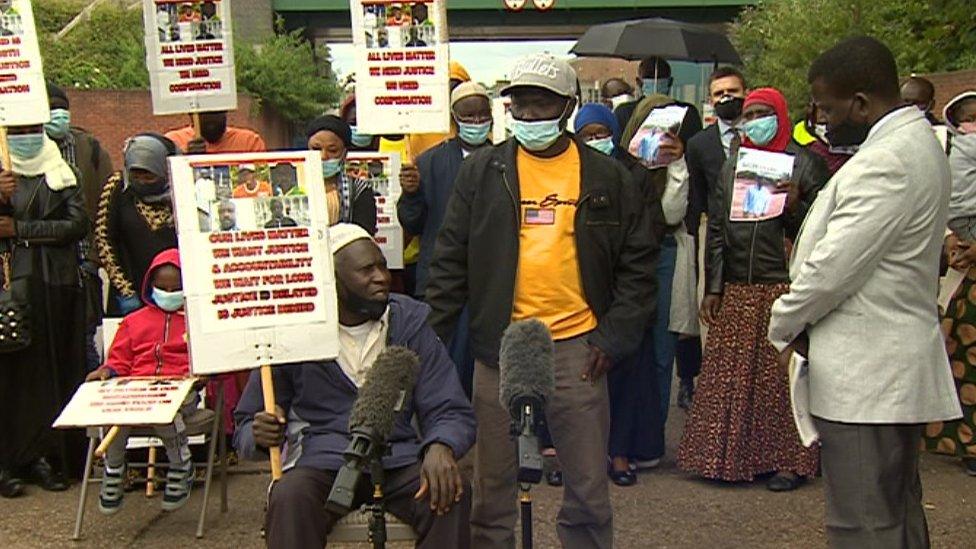
Tombong Conteh survived the wall collapse
Shredmet's safety advisor Michael White told the 2018 inquest in a statement he was not asked to assess the risks of walls at the scrapyard and he had "no knowledge" how long the wall had been there.
Wayne Hawkeswood, Shredmet's managing director, told those proceedings he could not "comprehend how this happened".

Follow BBC West Midlands on Facebook, external, Twitter, external and Instagram, external. Send your story ideas to: newsonline.westmidlands@bbc.co.uk, external
- Published1 July 2020
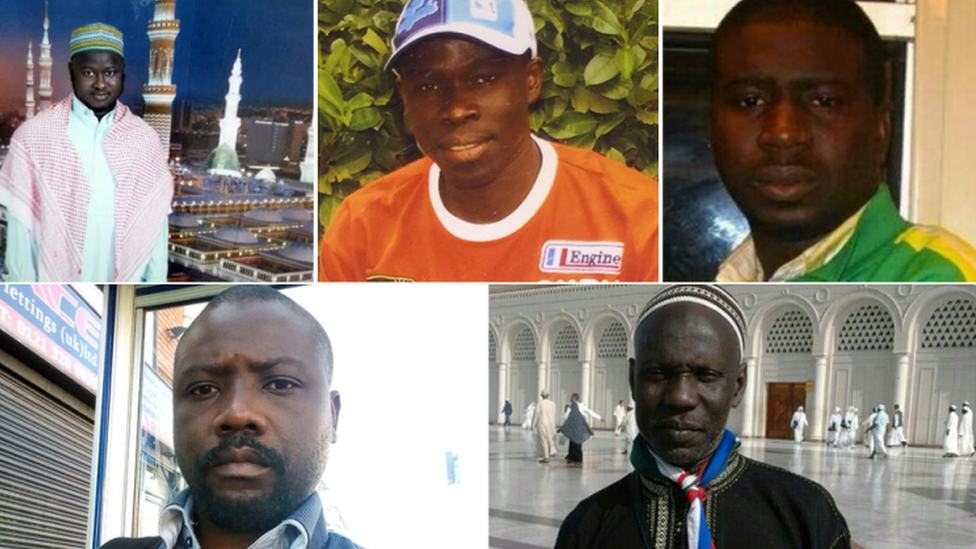
- Published16 November 2018

- Published15 November 2018

- Published14 November 2018
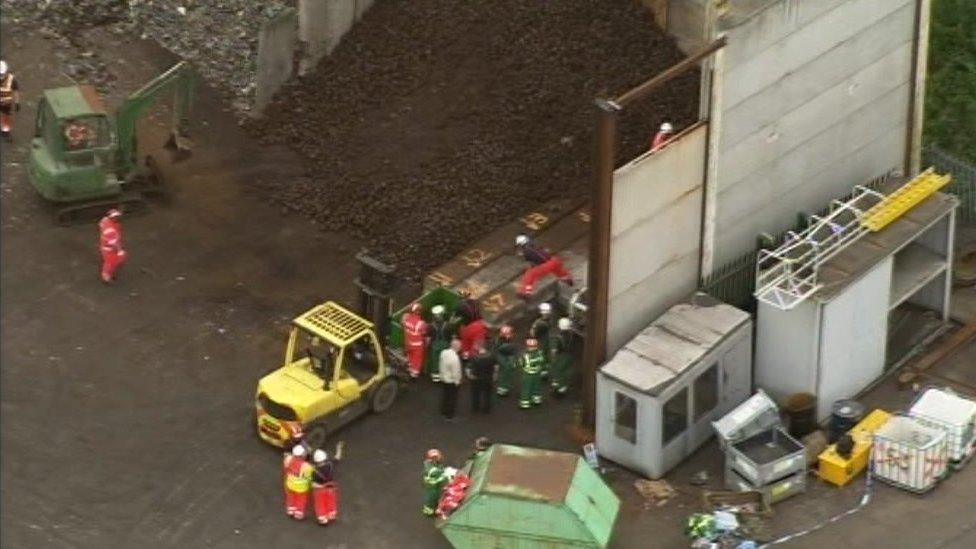
- Published13 November 2018

- Published7 July 2016
